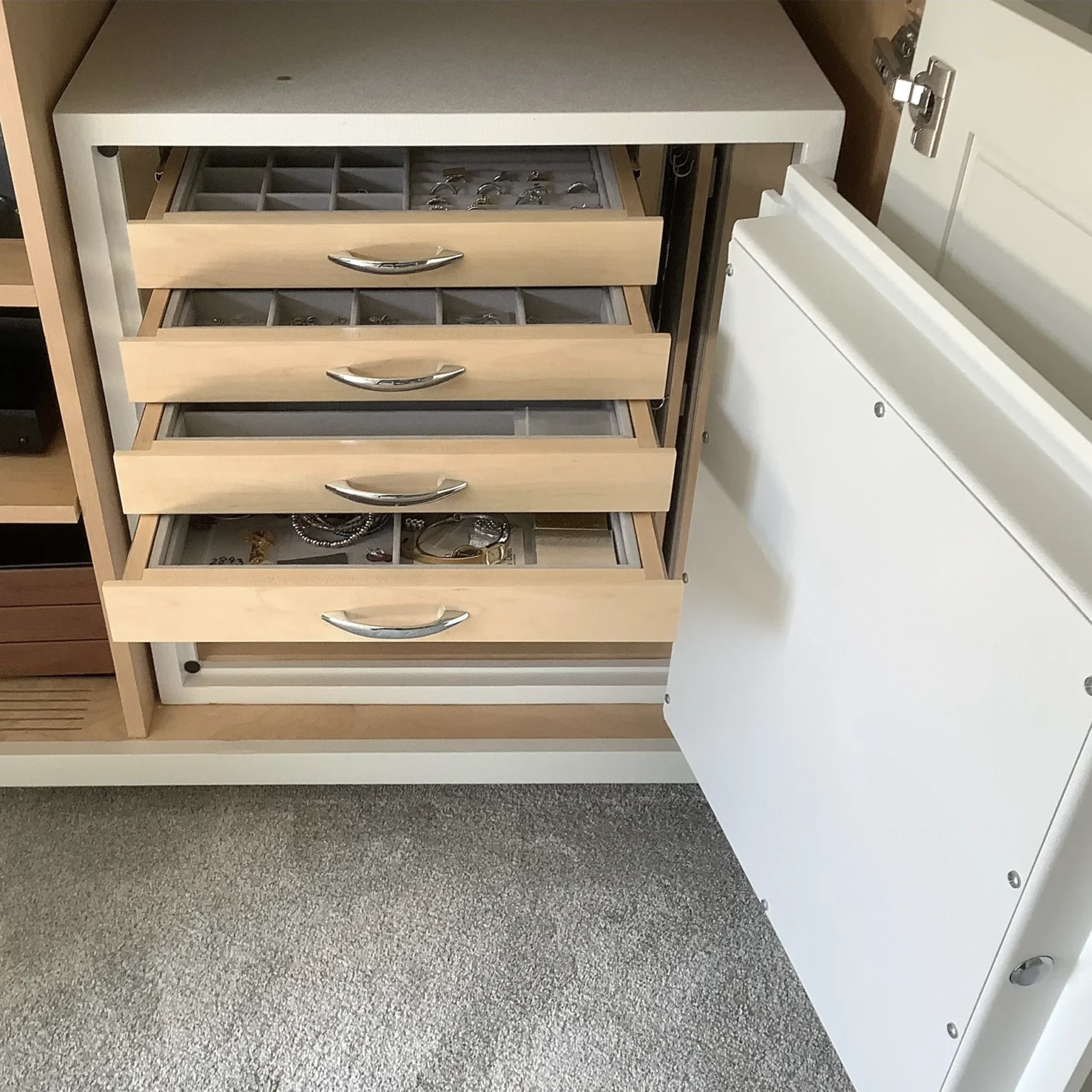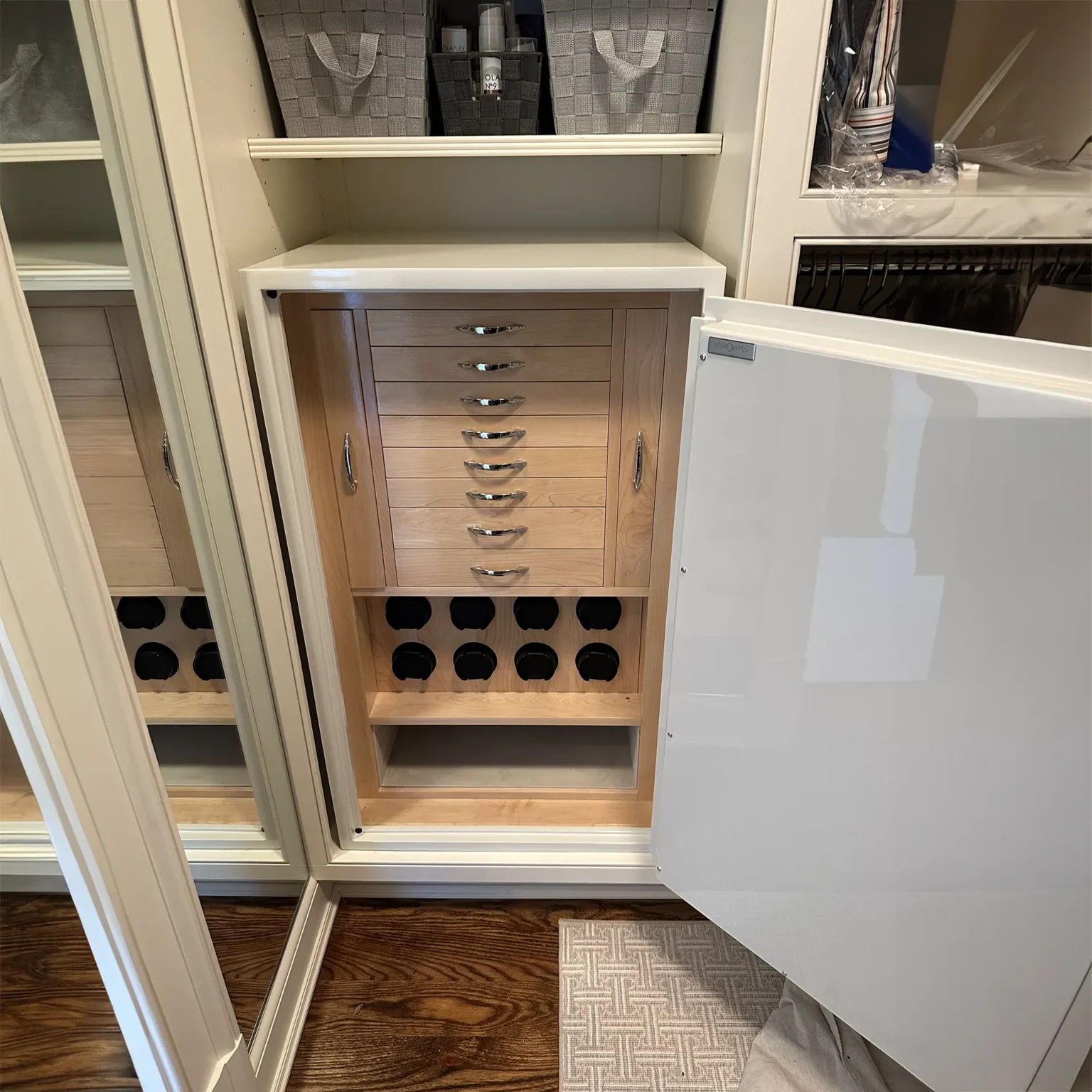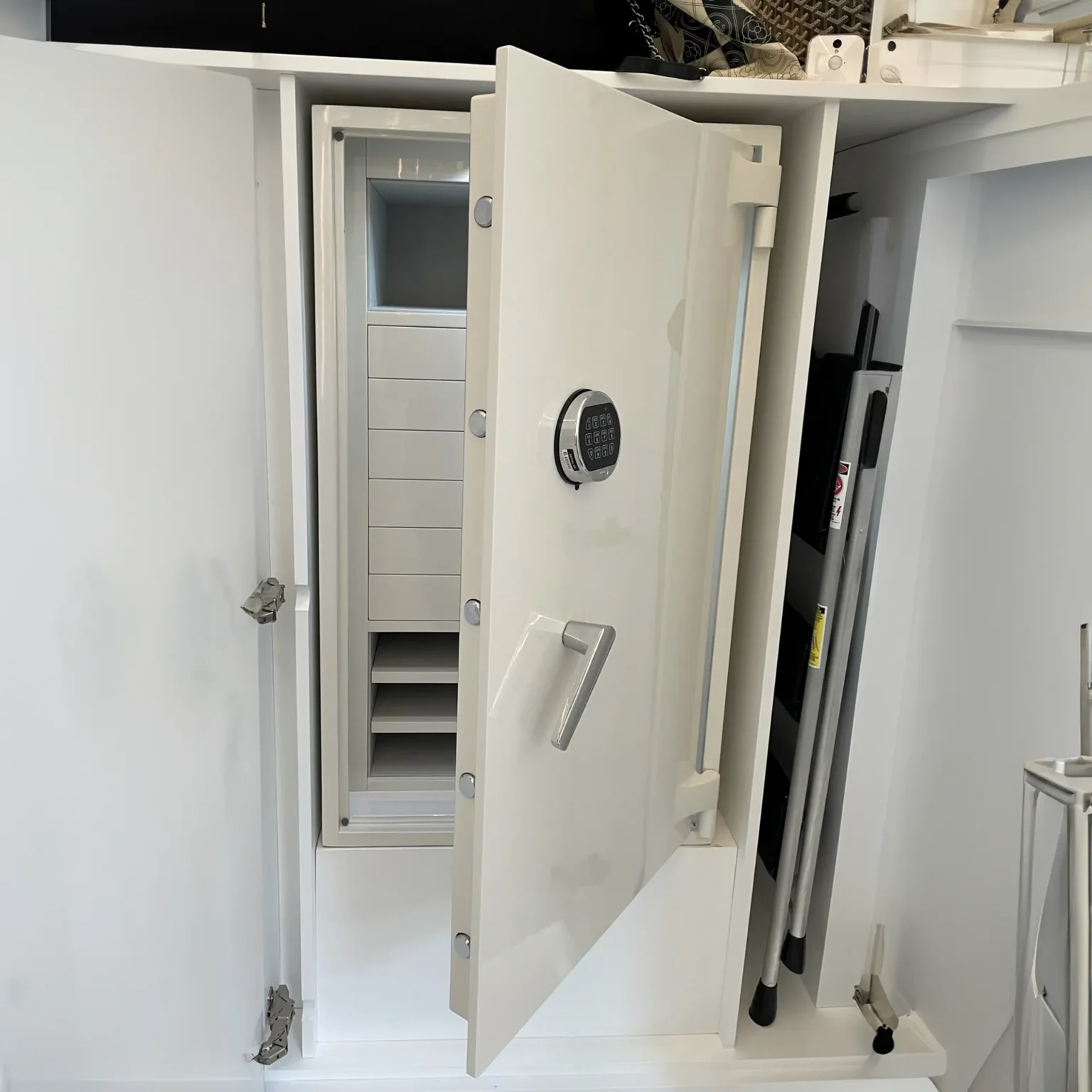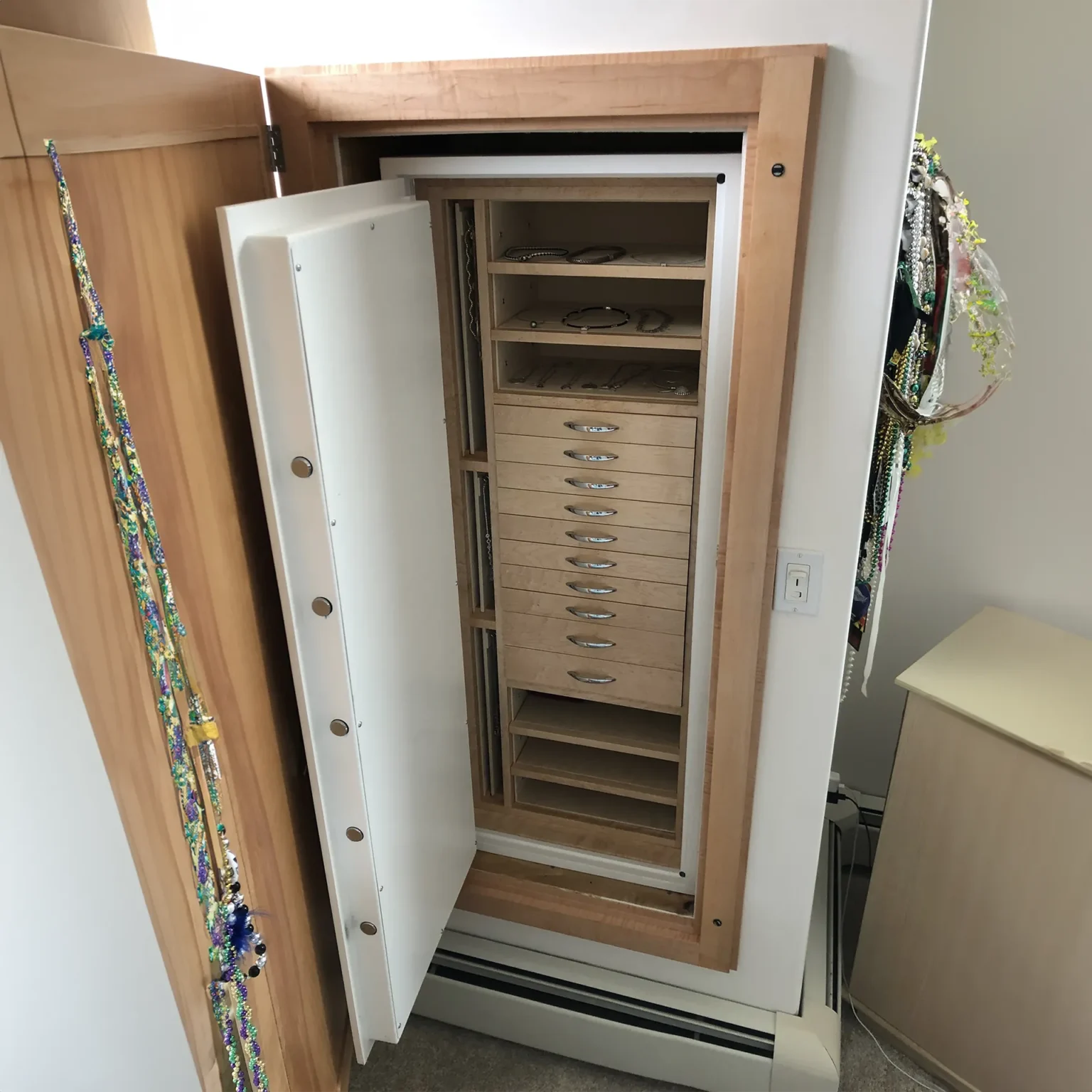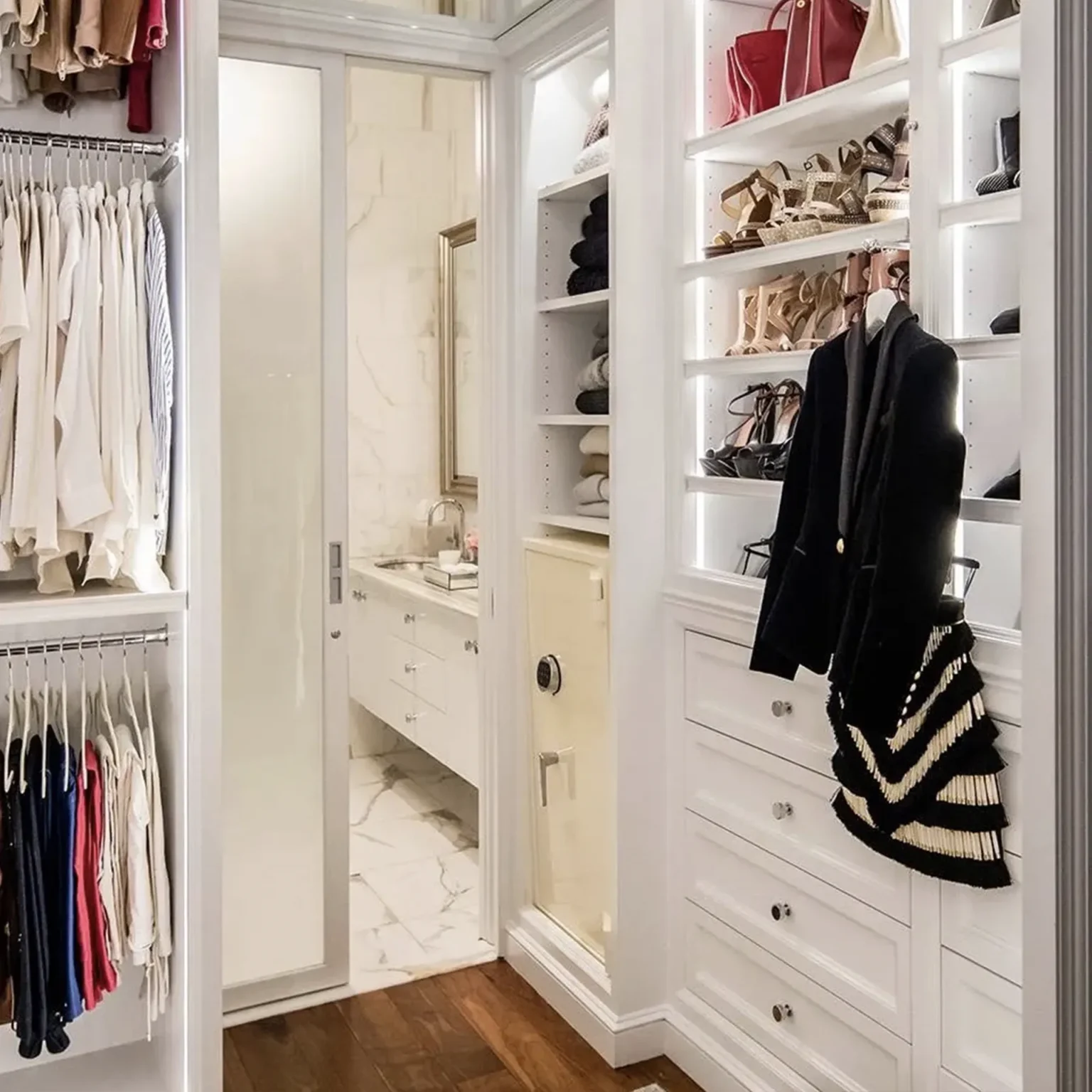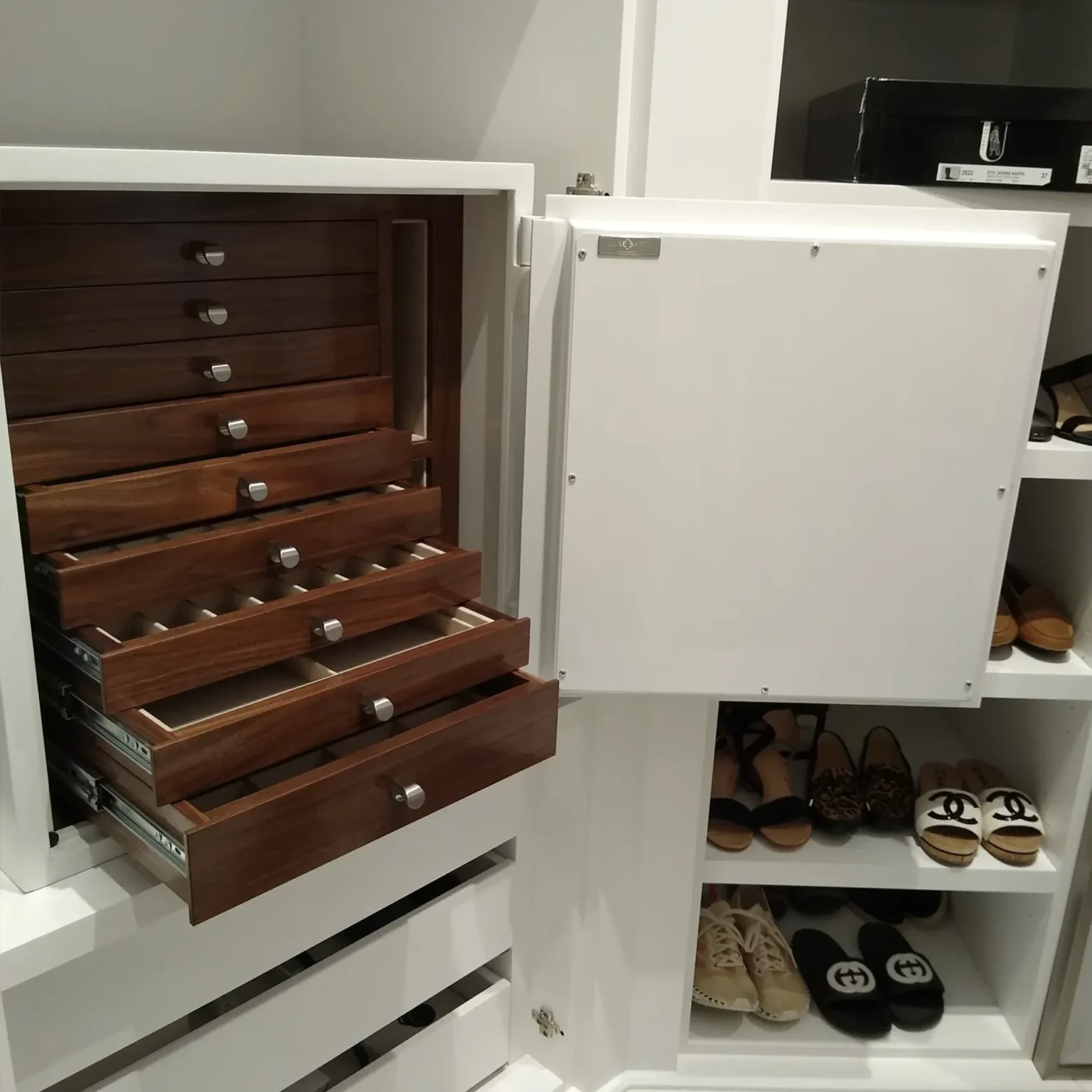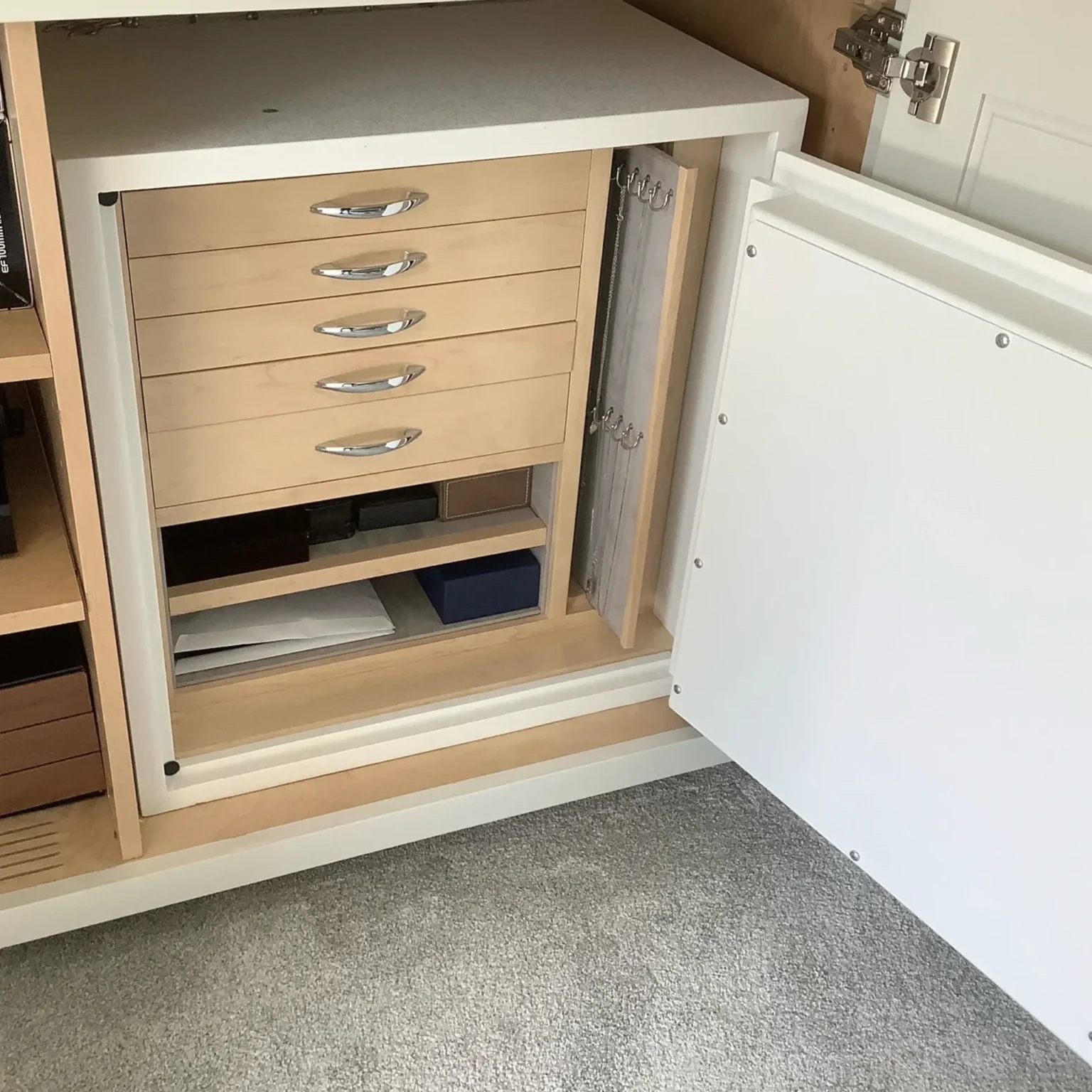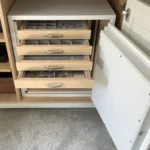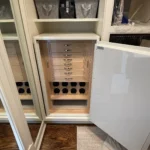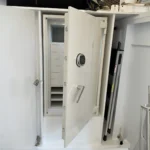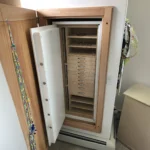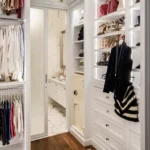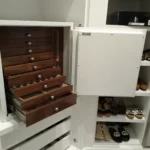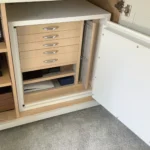What To Look For in a Jewelry Safe: Secure Your Valuables with Confidence
Protection Shouldn’t Be an Afterthought
A quality jewelry safe isn’t just a metal box. It’s a daily-use tool, a piece of personal infrastructure, and in many cases, a long-term investment. Whether you’re buying your first safe or replacing an off-the-shelf model that no longer fits your lifestyle, knowing what to look for can make the difference between peace of mind and lingering risk.
In this guide, we break down exactly what matters when evaluating a jewelry safe—from the essential specs to the thoughtful touches that make daily use effortless. If you’re asking, “What should I be looking for in a jewelry safe?” — this is your answer.
Tailor Designed to Match Your Requirements
Fully Custom Jewelry Safes: Any size. Any color. Any interior. Configure drawers for rings, watches, necklaces, and more. Designed to seamlessly fit your home’s style and space. From bold, high-gloss finishes to hidden-in-plain-sight installations, your jewelry safe will be one of a kind—crafted by our expert team to reflect your taste and meet your specific security goals.
get a quote1. Security Ratings That Actually Mean Something
🔒 UL Burglary Ratings
Look for safes that meet or exceed UL (Underwriters Laboratories) standards. At a minimum:
- RSC (Residential Security Container) – resists light attacks
- TL-15 / TL-30 – resists more sophisticated tool attacks for 15–30 minutes
TL-rated safes are typically recommended for:
- High-value jewelry collections
- Luxury watches
- Combined storage of jewelry + documents + heirlooms
A safe is only as good as its tested resistance.
2. Fire Protection You Can Count On
Most high-value jewelry collections include:
- Precious metals
- Documents (appraisals, certifications)
- Sensitive materials like pearls, opals, or photographs
Look for:
- UL Class 350 1-hour or 2-hour fire rating
- Internal temperature stays below 350°F even in external fires up to 1700°F
- Safes with double walls and insulation between
Fire risk isn’t just theoretical—it’s one of the top causes of asset loss in residential settings.
3. Interior Designed for Jewelry—Not Just Storage
This is where most generic safes fall short. A true jewelry safe should offer:
- Velvet or suede-lined drawers
- Modular layouts for rings, necklaces, watches, bracelets, and earrings
- Optional watch winders for automatic timepieces
- Soft-close mechanisms to reduce jarring or metal-on-metal contact
- LED interior lighting for visibility (especially in low-light closets)
Pro tip: Avoid safes with deep, open interiors and no compartmentalization. Jewelry shouldn’t sit in a pile.
4. A Size That Matches Your Lifestyle (and Collection Growth)
Many buyers underestimate how quickly a safe can feel too small. Evaluate:
- Current collection size
- Planned future purchases
- Other items to store (passports, cash, digital backups, heirlooms)
Size guidelines:
| Collection Type | Suggested Capacity |
|---|---|
| Starter Collection | 1–2 cubic ft / 2–3 drawers |
| Moderate Collection | 4–6 cubic ft / 5+ drawers |
| Investment/Heirloom | 8–12+ cubic ft / custom drawers & winders |
Better to buy once at the right scale than upgrade in two years.
5. Access Control That Balances Security + Convenience
Your safe should protect—but also work with your daily routine. Choose from:
- Biometric fingerprint readers – fast and discreet
- Digital keypads – secure and programmable
- Mechanical dial locks – reliable but slower (good for long-term storage)
- Dual-access systems – great for couples, estate planning, or staff access
Also consider:
- Audit logs (track who accessed and when)
- Silent alarm integrations
- App alerts or remote open functions for advanced use cases
6. Aesthetics That Match the Space
You’re not buying a warehouse vault. Jewelry safes—especially in luxury homes—should complement the space.
- Matte or high-gloss finishes in neutral or custom tones
- Hardware that matches closet or vanity designs
- Custom cabinetry or millwork options
- Discreet exterior with no obvious branding or mechanical parts
Where possible, flush-mount installation or hidden panels are ideal for both aesthetics and security.
7. Installation That’s Smart and Secure
Proper installation is half the battle:
- Bolt-down where permitted (floor or rear anchoring)
- Use hidden or semi-concealed locations
- Place at accessible height (avoid requiring crouching or reaching)
- Account for door swing and clearance inside a closet or cabinet
If you’re working with a contractor or interior designer, involve them early so the safe is part of the design—not an afterthought.
8. A Partner, Not Just a Product
You want a company that doesn’t just drop a safe at your door.
Expect:
- White-glove delivery
- In-home placement and bolt-down
- Guidance on layout, drawer organization, and maintenance
- A team that understands how jewelry owners think and live
At LuxeSafes, we’ve helped homeowners, designers, and estate professionals integrate jewelry safes into everyday life—beautifully.
FAQs
What’s the most important spec for a jewelry safe?
It depends on your priorities. For most homeowners, it’s a combination of UL-rated burglary + fire protection and interior drawer quality. Those two elements make or break your experience.
How do I know what size safe I need?
Start by listing what you currently own—and what you expect to acquire in the next 3–5 years. If in doubt, size up. Interior drawers take up room, and people often forget to account for document storage.
Can I install a jewelry safe in an apartment or condo?
Yes, but you’ll need to account for anchoring restrictions. Wall or cabinetry anchoring is often a better option than floor bolts in multi-unit buildings. We can help you plan around these needs.
Is a fireproof safe automatically secure against theft?
Not necessarily. Many fire safes lack burglary protection. The best safes are dual-rated, offering fire resistance and tool-resistant steel body construction.

